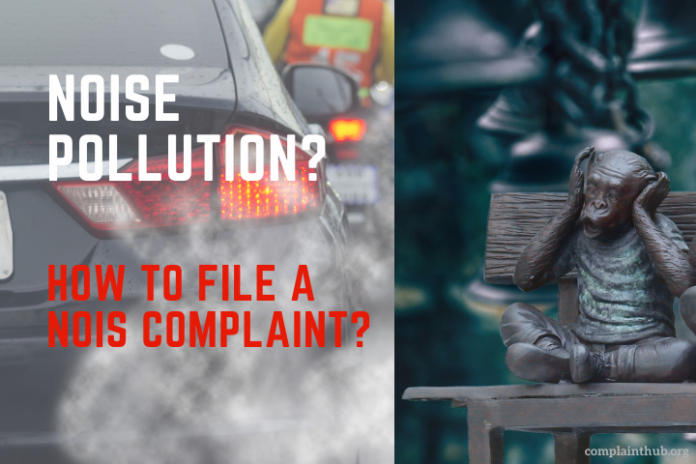An FIR, or First Information Report, is a written document prepared by the police when they receive information about the committed cognizable offence. The FIR is not a substantive piece of evidence, but it can be used to corroborate the testimony of the informant or to contradict it. This FIR is the basis for the police investigation and the charge sheet.
The Indian Penal Code (IPC), 1860 does not define FIR, but it contains various provisions that deal with the offences that are cognizable under the CrPC. For example, Section 302 of the IPC defines the offence of murder, which is a cognizable offence under the CrPC.
Therefore, if a person informs the police about a murder, the police have to register an FIR and investigate the case.
Cognizable Offence
A cognizable offence is a criminal act where the police can arrest a person without a warrant and start an immediate investigation, as defined in the First Schedule of the Code of Criminal Procedure (CrPC), 1973. It includes serious crimes like murder, rape, theft, assault, etc.
Some examples of cognizable offences:
- Murder: The act of killing another person with the intention or knowledge of causing death, punishable with death or imprisonment for life under Section 302 of the Indian Penal Code (IPC).
- Rape: The act of sexual intercourse or any other sexual act with a woman against her will or consent, or by force, coercion, or deception, punishable with imprisonment for not less than 10 years and may extend to life under Section 376 of the IPC.
- Kidnapping: The act of taking away or confining a person by force or deceit, without the consent of that person or the lawful guardian, punishable with imprisonment for up to 7 years and a fine under Section 363 of the IPC.
- Theft: The act of dishonestly taking or moving any movable property out of the possession of any person without that person’s consent, punishable with imprisonment for up to 3 years or a fine or both under Section 379 of the IPC.
- Dowry Death: The act of causing the death of a woman by her husband or his relatives within 7 years of her marriage, due to harassment or cruelty for the demand of dowry, punishable with imprisonment for not less than 7 years and may extend to life under Section 304B of the IPC.
Non-Cognizable Offence
Non-cognizable offences are considered less serious in nature and for which a police officer has no authority to arrest without a warrant, as defined in Section 2(l) of the Code of Criminal Procedure (CrPC), 1973. In such cases, the police require a warrant from the court before making an arrest and starting an investigation. For non-cognizable offences, a complaint must be filed with the magistrate before the police can initiate an investigation as per Section 155(2) of the CrPC.
Some examples of this offence are:
- Defamation: The act of harming the reputation of another person by making false or malicious statements, punishable with imprisonment up to two years or a fine or both under Section 500 of the Indian Penal Code (IPC).
- Cheating: The act of deceiving another person with the intention of causing wrongful loss or gain, punishable with imprisonment up to one year or a fine or both under Section 417 of the IPC.
- Public nuisance: The act of causing annoyance, inconvenience, or damage to the public or any person by doing any unlawful act or omitting to do any lawful act, punishable with a fine up to two hundred rupees under Section 290 of the IPC.
- Criminal assault: The act of using force or threat of force to cause fear or hurt to another person, punishable with imprisonment up to three months or a fine up to five hundred rupees or both under Section 352 of the IPC.
As per the nature of the incident or case, file an FIR at the local police station or online e-FIR which is acceptable by some state police only for a limited non-cognizable cases.
Where to File an FIR?
You can file an FIR at any local police station, even if the crime occurred in a different jurisdiction. This is known as a “zero FIR”. The police are obligated to register your complaint and initiate an investigation regardless of the location of the crime. Some states also allow online filing of FIRs for certain types of offences, such as cyber crimes, theft, lost articles, etc.
Required Details for FIR:
- Personal Identification:
- Photo ID proof (Aadhaar card, Voter ID, PAN card, etc.)
- Address proof (if applicable)
- Witness identification (if any)
- Information about the crime:
- Date and time of the incident
- Location of the incident
- Description of the offense
- Description of the accused (if known)
Any evidence you may have (medical reports, scanned documents, photographs, videos, etc.)
Note: To report a cybercrime, call 1930 or file a complaint online through the National Cyber Crime Reporting Portal.
Do not hesitate to approach the police if you have been a victim of a crime and be confident and assertive while narrating your experience. You have the right to seek legal assistance (from a lawyer) if you need help. Keep copies of all documents related to your FIR.
Procedure to File an FIR
1. At Local Police Station:
- Approach the police station: Inform the duty officer or SHO about your intention to file an FIR.
- Provide details of the crime: Narrate the incident clearly and chronologically. Be specific and provide as much information as possible.
- Statement: The police will record your statement in writing and ensure all details are accurate and complete.
- Sign the FIR: After verifying the information, you will be asked to sign the FIR.
- Collect a copy: Obtain a copy of the FIR for your records free of cost (Mandatory).
2. Online filing of FIRs (may vary from state to state):
You can visit the official website of the state police or the digital police portal of the Ministry of Home Affairs.
- Visit Digital Police, Ministry of Home Affairs (digitalpolice.gov.in)
- Select the state/UT police
- Select the option for filing a complaint or an FIR through CCTNS
Fill in the required details and upload any supporting documents, if any. - Submit the complaint or the FIR and get a confirmation number or a receipt
- Approach the concerned police station for further action (if required)
For the state-specific guidelines, you may refer to the “State/UT Police” list.
Applicable Laws and Rules
Some laws and rules govern the filing of FIRs and offences in India:
- The Code of Criminal Procedure, 1973 (CrPC):
- Section 154(1): The police must register an FIR for cognizable offences.
- Section 154(3): Allows anyone to file a zero FIR.
- The Indian Penal Code, 1860 (IPC): Defines and categorizes various offences as cognizable or non-cognizable.
- The Police Act, 1861: Provides the framework for the functioning of the police force and their duties.
The Supreme Court Guidelines on FIRs lay down specific guidelines for the police to follow while registering FIRs
These guidelines include ensuring a complainant-friendly environment, providing legal aid, and taking appropriate action against officers who refuse to register FIRs.
Additional Resources:
Note: By understanding the process and legal framework surrounding FIRs, you can ensure that your complaint is registered and that the investigation can be initiated by the police.
Additional Reference
- Ministry of Home Affairs | Digital Police. https://digitalpolice.gov.in/.
- National Crime Records Bureau (NCRB): https://ncrb.gov.in/
- National Commission for Women (NCW): http://ncw.nic.in/
- Ministry of Home Affairs (MHA): https://www.mha.gov.in/en

















